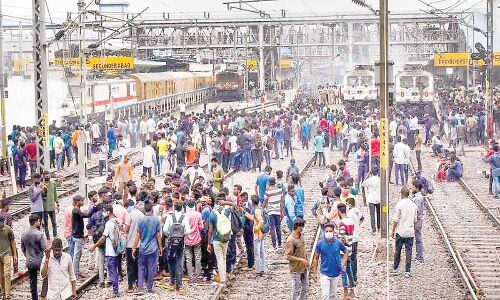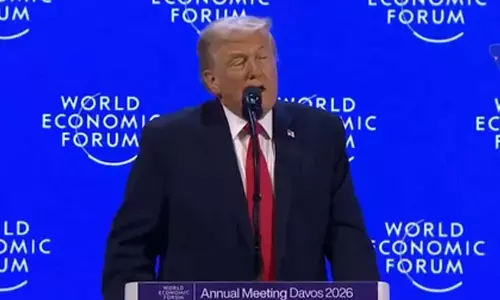Will Agnipath create a large-scale social imbalance?

Agniveers cannot get adequate training to combat in the short span of 4 years
The support to the ant-Agnipath agitation is gradually swelling. There is every possibility that it may be prolonged after the entry of Sanyukt Kisan Morcha. Most of the opposition parties have already criticized the scheme. In fact, the government is completely isolated on the issue. Agitators have even ignored the threat issued to them by the government that their involvement in anti-Aginpath agitation will bar them from a job in the Indian Army. However, the question is whether the government will relent.
The Prime Minister's assertion indicates otherwise. He has said that initially, every good decision appears improper, but it is accepted afterwards. The statement makes it clear that at the moment, no rollback is under the government's consideration. Perhaps, the Prime Minister has in mind his previous decisions on demonetisation and corona-lockdown. But he seems to have forgotten the three farm laws he had to withdraw after a year-long Satyagrah of farmers.
The continued agitation against the Agnipath scheme only shows the failure on the part of the government to put things in perspective. It is misplaced to portray the job of a soldier as something super-human. Abstractions being attached to the job of a soldier and terming it as an expression of a desire to sacrifice everything for the sake of the motherland is also not logical. It is true that the job symbolises patriotism, but it hardly means that soldiers should renounce everything in life, including honour and security for themselves and their families.
It is illogical to ignore the fact that the better service-conditions and the honour attached to the army-job have been major attractions for the youth from the families of farmers and landless sections of the rural society. Making appeal to renounce everything in the name of the country is a hollow sermon. Is sacrificing life for the country an act of spirituality or a conscious deed of a committed and honest citizen?
This is also a fallacious way to create dissimilarities between soldiers and other citizens. No nation can survive without a cumulative sense of nationalism. Some people may be trained to fight at borders and should be admired for their bravery. But it hardly means that others are unpatriotic or less patriotic.
The late Prime Minister Lal Bahadur Shastri reconciled this dichotomy by introducing the Jai Jawan, Jai Kisan slogan. This was the best articulation of Indian nationalism wherein a soldier and a farmer were given equal status. The slogan recognises the contribution of every citizen to the cause of the nation.
Other arguments in favour of the scheme are also not convincing. The idea of having an army with a lower average age is controversial. There is no uniform pattern in the world. The average age of some of the best armies in the world is well above the 26 years that the Indian Army seeks to achieve through the scheme.
Many armies in the world have a higher upper age limit to join them. The average age of enlistees in the US Army is 27. The officers have an average age of 34 years. General Bipin Rawat had even suggested that the age of retirement for Personnel below Officer Rank (PBOR) should be raised from 38 to 58. The US Army has an upper age limit of 42 and the UK army, 50. But the Agnipath scheme sets 21 as the upper age limit to join the Indian Army.
This is also important to consider that Agniveers cannot get adequate training to combat in the short span of four years. They could hardly be deployed on glaciers and other difficult terrain. Moreover, the 75 per cent of the Agniveers will be competing with each other to continue in the job. Will this make them a part of a cohesive team?
The government is trying to hide the fact that a weak economy has necessitated this kind of scheme, and it is a measure for cost-cutting. The burgeoning pension bill has been a constant headache for the government. But is it advisable to compromise on defense needs to maintain the economic balance? We know how insecure our borders are right now.
The big question is what Agniveers will do after their four-year stint in the army is over. The discourse on the issue is largely centered on their employment. The induction of such a large number of individuals into society with training in handling sophisticated weapons will certainly create social imbalance in a country with so many cleavages.














